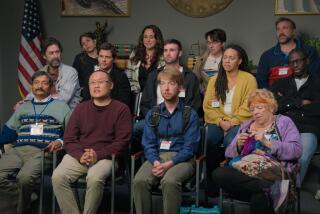The Court Replies:
- Share via
GLORIA GOMEZ, Manager of juror services, Compton Superior Court
In this situation, there was a request for approximately 400 jurors for a murder case. We have procedures in situations like this because it takes time to provide so many people. We have new jurors report on what’s called an impanelment day (basically a new jurors day). Jurors are selected randomly and scheduled to return when the case requiring the large number of jurors will begin. The judge directs us when he or she would like the jurors to report. This is what occurred here. He was placed on call, which means he had to report or call and check for a date to report.
This is not uncommon. In all instances, we do try to take into consideration if a juror has a hardship. We ask jurors to talk with the judge or pass on information to the court clerk for forwarding to the judge.
We really are trying to make the experience as painless and efficient as possible. During juror orientation, we try to provide as much information as possible to indicate what the expectations will be so they won’t have surprises. We provide answers to commonly asked questions. We have a program called Juror Docent where we try to personalize the information so that jurors don’t feel they’re just a number. We are dissiminating a lot more information in written form to the jurors while they are in court. They are kept informed of things like parking availability, lunch locations, length of their service, time remaining. We have Juror Appreciation Week when we show appreciation for their efforts.
People forget that those of us who work here serve on juries too. We know what it’s like to wait endlessly in hallways, not know what’s going on. We’re cognizant of all the complaints. We take jurors’ experiences and complaints to the people who can help change and improve this process. And contrary to Mr. Chik’s comment, judges are not exempt from jury service and are required to serve.


